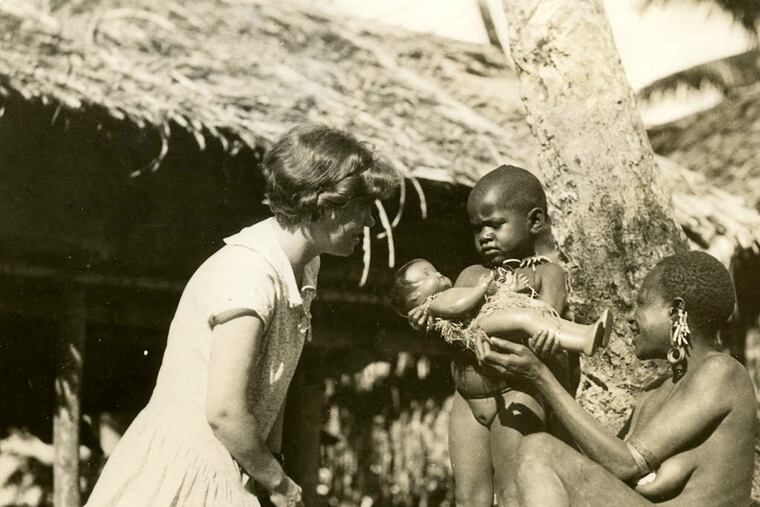For Margaret Mead, Bucks was always home
America's most famous anthropologist grew up in a Bucks County house 2¾ stories tall. Though she would make a name for herself studying adolescence in the monsoonal jungles of Samoa, Margaret Mead spent her own at Longland Farm in Holicong, Buckingham Township.

America's most famous anthropologist grew up in a Bucks County house 2¾ stories tall. Though she would make a name for herself studying adolescence in the monsoonal jungles of Samoa, Margaret Mead spent her own at Longland Farm in Holicong, Buckingham Township.
The daughter of an economist father and sociologist mother, Mead (1901-78) received much of her early education at home. While pursuing a Ph.D. at Columbia University, she became interested in the "emotional stress and turmoil" many Americans experienced during puberty.
To determine whether these experiences were biologically or culturally determined, Mead left for the South Pacific to conduct her fieldwork.
Coming of Age in Samoa (1928), which recounted her time spent with 25 young women in three villages, found that, for them, adolescence was neither distressing nor constrained.
Mead argued that humans experience developmental stages differently across the world, with their experiences shaped mostly by the demands and expectations of parents and peers.
The book met with instant success, becoming a key text in the early nature/nurture debates. Headlines even heralded Samoa as the "Place for Women" and "Where Neuroses Cease."
Through her research, Mead became the first anthropologist to look at human development in a cross-cultural perspective. In the rest of her prolific professional life, Mead focused on issues of childhood education, mental health, sexual mores, and other social issues. Her 1925-78 bibliography of books, articles, lectures, and presentations runs more than 100 pages long.
No matter how far her work took her from Pennsylvania, Mead remained emotionally attached to her Bucks County homestead. She often returned to the area to give lectures and visit friends.
For a woman who sailed alone to Oceania at 23 and traveled much of the world thereafter, Longland Farm might have seemed unexotic. However, for Mead, "Living on the farm . . . opened our eyes to great diversity of experience." At Longland, Mead had the "kinds of experiences that have made me what I am, myself."
Mead maintained her status as a Bucks Countian until her death in 1978. A few years before, she had removed any doubt: "Bucks County gave the world Jimmy Michener . . . and me."